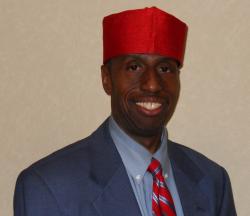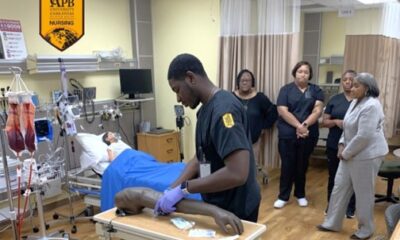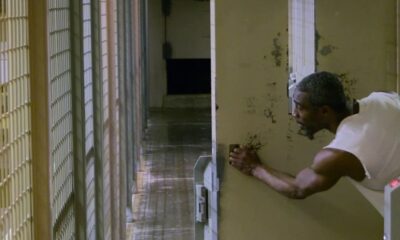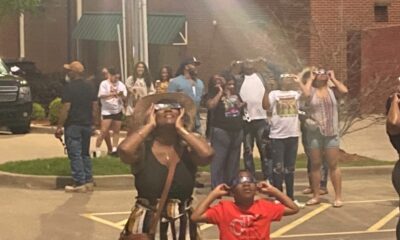News
Kevin Powell Unpacks His Travel Bag
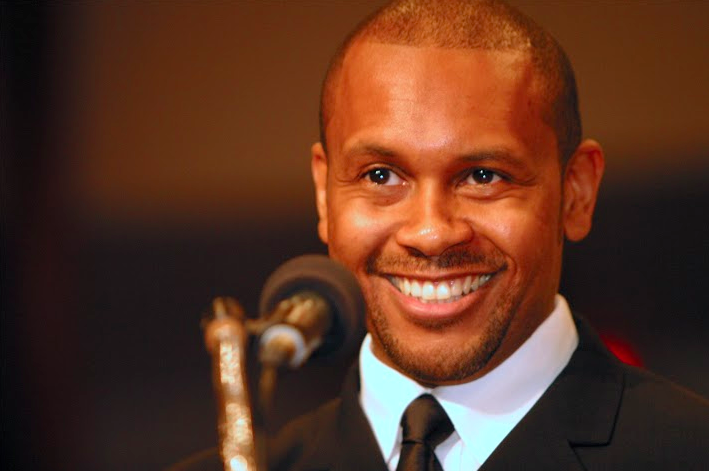
Overcoming life’s obstacles is not an easy task especially for those who grow up in urban areas that are impoverished and crime-infested.
I know from personal experience, growing up in the 1960s and 1970s in Alexandria, Louisiana. My best friend and I still talk about we survived. Kevin Powell, a native of Jersey City, New Jersey, knows all so well about living and surviving in a tough neighborhood.
Powell, like myself, had a mother who did what it took to ensure he succeeded. Even though, she didn’t have a high school diploma herself, Powell’s struggling single mother instilled in him a will to not only survive, but graduate from high school and college at Rutgers University. It was the beginning for the renowned author and journalist whose work has appeared in Vibe, the Washington Post, Esquire, and the Huffington Post.
Powell’s latest book, The Education of Kevin Powell: A Boy’s Journey Into Manhood goes more in-depth about growing up in Jersey City and overcoming poverty, anger, self-hatred, violence, homelessness, racism, and despair. The centerpiece of Powell’s book recalls a beating. He goes on to convey the message that no matter how badly someone beats you up, literally or figuratively, you can always get back up and live another day.
The Village Celebration recently interviewed Powell about his life experiences.
TVC: I understand that you tour the country speaking to groups of black men. Do you get a sense that many of the men you have met during these tours have had childhood experiences similar to yours, even the ones who grew up in rural areas?
Powell: I think if they were poor, like I was, [or] working class, yes. I have heard people say over and over again, “I’ve experienced what you have experienced” … and that includes [those who grew up] in rural areas.
I know one time, [I did] a rural black-male tour of areas of Georgia. It was deep! It was not Atlanta or Savannah … [they] were small towns with the same stories — single mothers, absent fathers and the violence, fears, a sense of desperation … and some things were similar to my life. This country has still not fully addressed systemic racism, classism, and how we regard people who are of color. And we still have major issues around the educational system. … A lot of our brothers out there are not getting basic skills … just to even survive out here. A lot of them end up turning to the streets [doing illegal activity], unfortunately.
How much of a factor has miseducation led to the destruction of black men and women in America?
Powell: That is a great question! Between kindergarten and the 12th grade … my black history lesson, in total, might have been two pages. If you [had seen] me when I was 18 years old, walking across that stage to get my high-school diploma…on my way to Rutgers University on a full financial aid package, [and] you asked me [about] Malcolm X, Harriet Tubman, Duke Ellington, Fannie Lou Hammer, Black Arts Movement, Harlem Renaissance, Black Wall Street, the Little Rock Nine — I would have spent more time in high school! I was a self-hating Negro. What I mean by that was I believed that my hair, skin color, and lips were not attractive. I was grossly miseducated. I believed that the white world was superior to anything we had.
When you hate yourself, you also hate people who look like you. When you hate people that look like you — you have no problem calling them names, cursing at them, yelling, kicking, screaming, fighting them, stabbing, shooting, and murdering them. The system has taught you so well to be a slave, with a slave mentality like we had on the plantation. [So] they can watch you destroy yourself and people in your community. This is why we need to have a real education, an education that includes a knowledge of self. Otherwise, we are going to be in deep trouble.
How many of us, black men and women, have experienced Post Traumatic Stress Disorder (PTSD) throughout our lives due to dealing with racism and poverty?
Powell: We certainly do have post traumatic stress disorder (PTSD). Pain and trauma is real. When people read this new book, there is a reason why I just don’t start with myself in the North. There is a reason why I talk about my family in the South. I talk about the kind of environment that my mother was forced work under, even though as a poor person, starting [at] eight years old, picking cotton down there. There is pain and trauma all over the place.
It’s not like we had Oprah, Dr. Phil, or some yoga. You [better] suck it up and deal with it. And you push that stuff down and it comes out in different ways on ourselves and each other. We medicate the pain and trauma with cigarettes, weed, alcohol, and drugs.
I don’t do it myself, but in my lifetime, I’ve drank liquor, smoked weed and cigarettes … anything to numb the pain. A lot of times, it is comfort food, because a lot of us don’t know that we have in our own hands to be a part of the healing process. It has become a part of our tradition, unfortunately, pass to generation to generation.
This is why I wrote the book. I want to write a memoir, or an autobiography, and I want to tell the truth…” I want to be transparent and honest. People may judge me. Some people may condemn me for it. I wish someone would have written this kind of book when I was 16 years old.

-

 Black History5 months ago
Black History5 months agoThe untold story of a Black woman who founded an Alabama hospital during Jim Crow
-
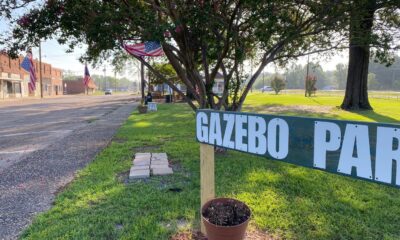
 Featured8 months ago
Featured8 months ago‘No Closure’ In Town Where Five Black Residents Were Either Murdered, Died Suspiciously Or Are Missing
-
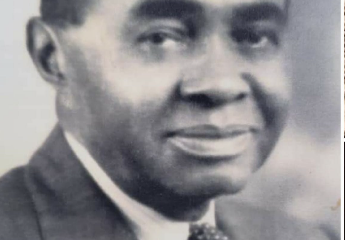
 Black History9 months ago
Black History9 months agoBlack History Lost and Found: New Research Pieces Together the Life of Prominent Texas Surgeon and Activist
-

 Featured9 months ago
Featured9 months agoFounder of “The Folding Chair” Podcast Calls Montgomery’s Brawl ‘Karma’
-
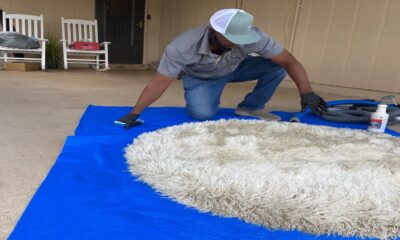
 Featured8 months ago
Featured8 months agoThousands ‘Live Their Dream’ During National Black Business Month
-

 Featured10 months ago
Featured10 months agoJuneteenth And ‘246 Years Of Free Labor’ Are Key To Conversations About Reparations

